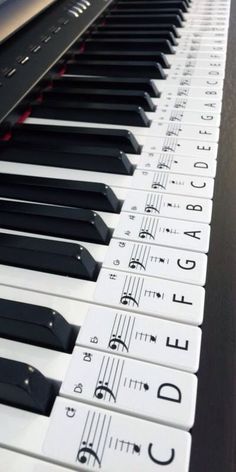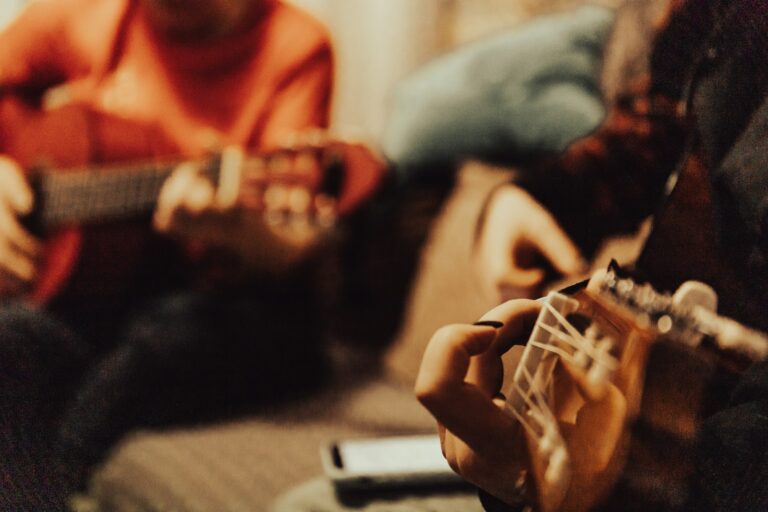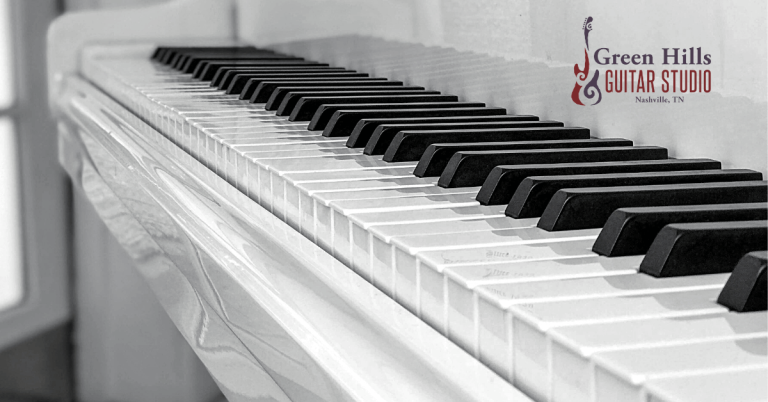Can I Teach Myself Piano?

By Kent Toalson, GHGS piano teacher
Why take piano lessons when you can teach yourself? Now more than ever, there are myriad resources online and endless instructional videos on YouTube and other platforms to teach you music. There are music-teaching apps for your smartphone that promise performance-level results in a few weeks or less. For the tech-savvy teacher, there’s an entire business model for piecemeal online content designed to teach only technical tidbits here and there (my own series—Kent’s Keys—would not fall outside of this critique). Simply put, there’s an overwhelming abundance of information for those who have the time and patience to sift through it.
Can you teach yourself piano? The answer is yes but just like any self-administered product, results may vary.
What you need to know to teach yourself piano
It depends on a few factors. The most important indicator is already having a music background. If you know the fundamentals of music theory on another instrument, then teaching yourself piano is primarily a technical pursuit. However, when it comes to musical instruments, piano allows for the widest range of possibilities and so it demands a thorough understanding of theory.
A full spectrum of melodic, harmonic and rhythmic theory is readily accessible on the keyboard. For this reason, piano is often taught in schools to all music majors, regardless of instrument.
For example, if your primary instrument is saxophone, you may find the piano—with all its intriguing potentialities—daunting to absorb on your own. Until you’ve sat down and learned from an “in real life” pianist, it is much more difficult to transpose theoretical knowledge and skill from another instrument onto the keyboard.
Questions to ask yourself before you attempt to teach yourself piano
Another factor to consider is whether you judge yourself as sufficiently self-motivated and self-critical.
- Will you commit to seeking knowledge on your own and work to achieve results on the piano from it?
- Do you have realistic goals in mind by teaching yourself, and if so, what habits are you forming to reach them?
- If you have these goals laid out, do you know if you are pursuing them in the most effective way?
- In being your own teacher, can you be humble and perceptive enough to see your flaws and work to correct them?
- Do you have other musicians who can analyze and honestly criticize your playing out of a desire to help you develop as a pianist?
If you answered yes to all of these, then by all means teach yourself piano!
Why you might burn out trying to teach yourself piano
For the most part, people will burn out on learning piano on their own by hitting a knowledge or technical plateau. Many will not understand how to progress because while they may have specific goals they lack a concrete way to achieve them. That being said, you can be the most motivated person alive, but you may be creating unnecessary obstacles and developing bad habits without personalized lessons guiding you.
Perhaps you don’t want a teacher because you desire freedom or unfettered creativity in your playing. This is a perfectly understandable concern but mostly unfounded. Popular culture has portrayed teachers (music teachers especially [see Whiplash, 2014 film]) with a predisposed affect of pedantry or snobbery. The best teacher will find what works best for you and help to develop your creativity beyond what you may have thought was possible. No teacher should try to put you into a box but rather see you as you are and unlock your potential.
All in all, I would argue that the assorted and complex cons of teaching yourself piano outweigh the pros of the time-tested, well-trod path of seeking a teacher. If you’re reading this and you’ve been teaching yourself piano for awhile now ask yourself how far you may have gotten with professional guidance thus far. If you’re considering lessons but not sold on them just yet, I encourage you to try teaching yourself for a bit. If you’re so inclined, maybe even buy that app that keeps popping up in those advertisements and just see how it all works out for you.
Everyone is different in his or her approach and some may feel they do not need supplemental support or instruction. But, know that there will always be physical, individualized guidance available for those who are ready to learn from others who were once in their position.








